What is fractional ownership? Can you finance fractional ownership? Read the full article to learn more about this real estate investment model.
Fractional ownership in real estate is an investment model where multiple unrelated parties collectively own a high-value property, sharing the benefits, costs, and usage rights. This approach allows individuals to enjoy properties—such as vacation homes, yachts, or private jets—that might be financially out of reach if purchased individually.
How Fractional Ownership Works
In a typical fractional ownership arrangement, a property is divided into equal shares, and investors purchase these shares to gain partial ownership. Each owner holds a deeded interest proportional to their investment, granting them specific rights to use the property and a share of any income it generates. For example, owning a one-eighth share in a vacation home entitles the investor to approximately 44 days of usage per year, with more significant shares providing increased access and priority during peak times.
Advantages of Fractional Ownership
-
Cost Efficiency: By dividing the purchase price and ongoing expenses among multiple owners, fractional ownership makes luxury properties more accessible. This shared financial responsibility reduces the burden on individual investors.
-
Reduced Maintenance Responsibilities: Management companies often oversee property maintenance, relieving owners of day-to-day upkeep tasks. This arrangement ensures the property remains in excellent condition without requiring direct involvement from each owner.
-
Diversification: Investors can allocate their resources across multiple properties or asset classes, spreading risk and potentially enhancing returns.
-
Potential Appreciation: Unlike traditional timeshares, fractional ownership involves holding a tangible asset that may appreciate over time, allowing owners to benefit from any increase in property value.
Distinguishing Fractional Ownership from Timeshares
While both fractional ownership and timeshares involve shared property use, they differ significantly in structure and benefits:
-
Ownership Structure: Fractional ownership provides a deeded share of the property, granting owners equity that can appreciate. In contrast, timeshares typically offer the right to use a property for a specific period without conveying actual ownership.
-
Investment Value: Fractional owners can profit from property appreciation upon sale, whereas timeshares often depreciate, offering limited investment potential.
-
Usage Flexibility: Fractional arrangements usually offer more flexible and extended usage periods compared to the fixed schedules common in timeshares.
Challenges and Considerations
Despite its advantages, fractional ownership presents certain challenges:
-
Limited Control: Shared ownership means decisions about the property require consensus, which can lead to disagreements among co-owners.
-
Resale Complexity: Selling a fractional share can be more challenging than selling an entire property, as the market for such shares is narrower.
-
Management Fees: Professional management services, while convenient, come with fees that can affect overall returns.
-
Market Risks: As with any real estate investment, property values can fluctuate, impacting the potential return on investment.
Recent Developments and Trends
The concept of fractional ownership has evolved with innovative business models entering the market. For instance, companies like Pacaso facilitate co-ownership of luxury vacation homes by purchasing properties and selling shares to individual investors. Owners receive a proportional share of the property and its usage, with the company handling management and maintenance. This model has gained traction, with Pacaso reaching a valuation of $1.5 billion in September 2021.
However, such models have faced resistance in some communities. Concerns include potential disruptions to neighborhood cohesion and property values, leading to debates about the impact of fractional ownership on local housing markets.
Legal and Regulatory Considerations
Investors should be aware of the legal and regulatory landscape surrounding fractional ownership:
-
Securities Regulations: In some jurisdictions, selling fractional interests may be subject to securities laws, requiring compliance with specific regulations.
-
Zoning Laws: Local zoning ordinances may restrict or regulate the use of properties for fractional ownership, especially in residential areas.
-
Tax Implications: Owners must consider property taxes, potential income taxes on rental income, and capital gains taxes upon sale.
Fractional ownership offers a viable pathway for individuals to invest in high-value real estate assets without bearing the total cost and responsibilities alone. While it provides benefits like cost-sharing, reduced maintenance burdens, and potential appreciation, investors must carefully weigh these against challenges such as limited control, resale complexities, and management fees. As with any investment, thorough due diligence, an understanding of legal obligations, and alignment with personal financial goals are essential before proceeding with fractional real estate ownership.








